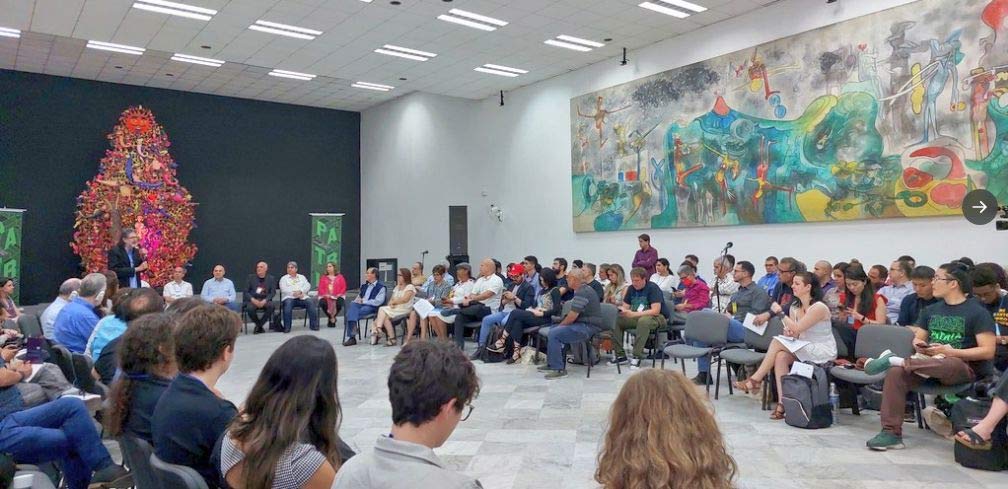They pointed out that the restrictions in cyberspace are an obstacle to individual and collective development, to the conformation of citizenship, to humans’ integral participation.
For this reason, they called on the media, organizations, governments and companies to join the condemnation of the economic blockade and to take action in favor of Cuba.
They pointed out that breaking the blockade is not only a necessity for Cuba, but also for international law, and Cuba’s solidarity with other countries during the Covid-19 pandemic.
Participants in the Patria Colloquium set out to strengthen their countries’ communication networks and design public intervention strategies against the proliferation of disinformation campaigns and attacks on those who are active in popular movements in Latin America and the Caribbean.
They also agreed to develop a comprehensive research and political training program that would result in better understanding of the complex situation that “we are going through as an essential stage in our fight against imperialism and the ambition of the large informational corporations.”
They concluded that “at this time of nearly terminal crisis, the Cuban people embody a promising bifurcation of the Western civilization model where possibilities of a livable future for all humanity nestle.”
For two days, the Colloquium brought together 58 foreign guests and 100 Cuban experts to discuss hate speech, disinformation and Washington’s blockade against Cuba on the digital scenario.
jg/ro/mks









